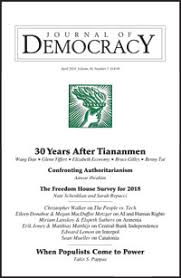 China is chasing dominance in emerging artificial intelligence (AI) technologies in both the private and military sectors, as a central part of its effort to be the leading global cyber power, according to Chris C. Demchak, the RDML Grace M. Hopper Chair of Cyber Security and Senior Cyber Scholar of the Cyber and Innovation Policy Institute, US Naval War College.
China is chasing dominance in emerging artificial intelligence (AI) technologies in both the private and military sectors, as a central part of its effort to be the leading global cyber power, according to Chris C. Demchak, the RDML Grace M. Hopper Chair of Cyber Security and Senior Cyber Scholar of the Cyber and Innovation Policy Institute, US Naval War College.
In the Bulletin of the Atomic Scientists, she notes how the westernized national creation called cyberspace created so many ubiquitous, embedded vulnerabilities whose easy exploitation directly accelerated the rise of an otherwise impoverished authoritarian and aggressive China.
“Today no single democracy has the scale and sufficient resources to alone match the foreknowledge and strategic coherence of the newly confident and assertive China,” she contends. “To change current global trends, the small group of consolidated democratic civil societies needs a collective approach to counter China’s growing dominance across all fields of cyberspace.”
 It is imperative that artificial intelligence evolve in ways that respect human rights, say analysts Eileen Donahoe and Megan MacDuffee Metzger. Happily, standards found in landmark UN documents can help with the task of making AI serve rather than subjugate human beings, they write for the NED’s Journal of Democracy.
It is imperative that artificial intelligence evolve in ways that respect human rights, say analysts Eileen Donahoe and Megan MacDuffee Metzger. Happily, standards found in landmark UN documents can help with the task of making AI serve rather than subjugate human beings, they write for the NED’s Journal of Democracy.
Due to the shoddy coding of the basic internet global
‘substrate’, a wide range of malicious state and nonstate actors now have five unprecedented offense advantages – scale of organization, proximity, precision, deception and tools, and opaqueness in origins – in removing wealth and capacity from western democracies, Demchak writes in Three Futures for a Post-Western Cybered World. They can:
- cheaply organize (at any scale) and
- use at any distance (proximity)
- any collection of cyber means (precision)
- with obfuscation in tools (deception) and
- in sources (opaqueness).
In the process, the consolidated civil society democracies have become non-kinetic fields of conflict among state and nonstate actors.
Demchak calls for the Cyber Operational Resilience Alliance (CORA) to provide the public and private scale and collective strategic coherence required to ensure the security of democracy in an authoritarian, post-western, cybered world.







